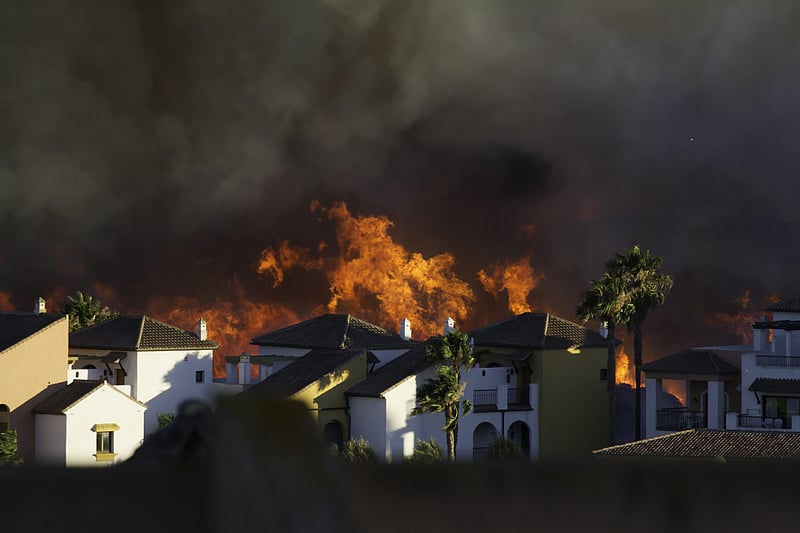Get Healthy!

- Cara Murez
- Posted January 23, 2023
'Climate Trauma': Brain Changes Seen in Survivors of California's Deadliest Wildfire
When the deadly Camp Fire swept through Northern California in 2018, it may have damaged more than the landscape.
University of California, San Diego researchers studying survivors' mental functioning in the wake of the deadliest and most destructive wildfire in the state's history have uncovered evidence of "climate trauma."
The November 2018 fire burned 239 square miles, destroyed 18,804 structures and killed 85 people.
"In this study, we wanted to learn whether and how climate trauma affected and altered cognitive and brain functions in a group of people who had experienced it during the Camp Fire," said Jyoti Mishra, an associate professor of psychiatry and associate director of the UC Climate and Mental Health Initiative.
"We found that those who were impacted, directly or indirectly, displayed weaker interference processing," she said in a university news release. "Such weakened cognitive performance may then impair daily functioning and reduce well-being."
To function well, brains need to process information and manage memories that help a person achieve goals, while dispensing of harmful distractions, Mishra said.
Extreme climate events are well-documented to have significant psychological impacts.
"Warming temperatures, for example, have even been linked to greater suicide rates," Mishra said. "As planetary warming amplifies, more forest fires are expected in California and globally, with significant implications for mental health effects."
The study included 27 people who were directly exposed to the Camp Fire, in Butte County. For example, their homes were destroyed. It also included 21 who were indirectly exposed, meaning they witnessed the blaze but were not directly affected. The last group were 27 control individuals.
All participants underwent cognitive testing with synchronized electroencephalography (EEG) brain recordings.
About 67% of participants directly exposed to the fire reported experiencing recent psychological trauma as did 14% of those who were indirectly exposed. None of the control group reported recent trauma exposure.
The EEG recordings showed that the brains of people who reported trauma had more trouble processing information and making decisions. The researchers said this suggests an effort to compensate but at the cost of a potentially heightened risk of neurological dysfunction.
This "climate trauma" for affected residents resulted in increased and chronic mental health problems, such as post-traumatic stress disorder and depression.
"The evidence of diminished interference processing, along with altered functional brain responses, is useful because it can help guide efforts to develop resiliency intervention strategies," Mishra said.
"As the planet warms, more and more individuals will face extreme climate exposures, like wildfires, and having therapeutic tools that can address underlying neuro-cognitive issues will be an important complement to other socio-behavioral therapies," she said.
Study findings were published online Jan. 18 in PLOS Climate.
More information
The U.S. National Oceanic and Atmospheric Administration has more on climate change.
SOURCE: University of California, San Diego, news release, Jan. 19, 2023




